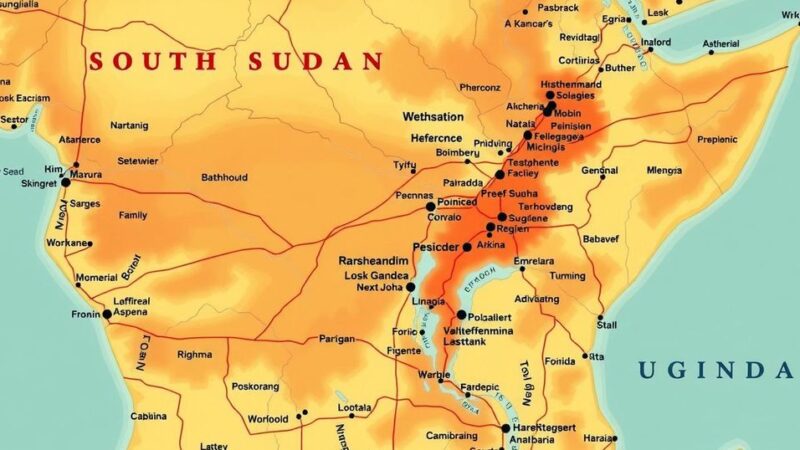Thirty migrants are stranded on an offshore platform near Tunisia, facing severe hunger and health deterioration. Aid organizations have urged Italian and Maltese authorities to intervene, affirming their rights to safe relocation. Concerns over human rights violations arise if these migrants are returned to Libya or Tunisia.
Approximately 30 migrants are stranded on an offshore platform in the Mediterranean, located about 75 miles off the coast of Tunisia. According to Alarm Phone, an emergency hotline service, these individuals have endured several days without food, leading to a rapid deterioration of their health. Reports indicate that the platform is not suitable for providing necessary care, as it has been described by the humanitarian group Sea-Watch, which visited the site.
The migrants arrived on an inflatable boat that was later secured to the platform. It has been reported that at least one migrant has died due to the harsh conditions, while others are experiencing severe hunger and exhaustion. Humanitarian aid organizations are urging Italian and Maltese authorities to take action, asserting that the migrants are situated in international waters and within the designated search and rescue zones for both countries.
A statement from Sea-Watch emphasized, “They have the right to be transferred to a safe port.” Furthermore, human rights organizations have expressed concern over potential complicity in rights violations on the part of Shell, the platform owner, and Amilcar Petroleum Operations, the operating entity. They caution that returning the migrants to Libya or Tunisia could violate international law, which prohibits deporting individuals to countries where they may face danger or persecution.
The plight of 30 stranded migrants on an offshore platform near Tunisia has raised critical humanitarian concerns. With deteriorating health conditions due to lack of food and aid, calls for intervention from Italian and Maltese authorities highlight the urgency of the situation. Additionally, potential rights violations related to returning these individuals to unsafe conditions may invoke significant legal implications under international law.
Original Source: libyaobserver.ly






